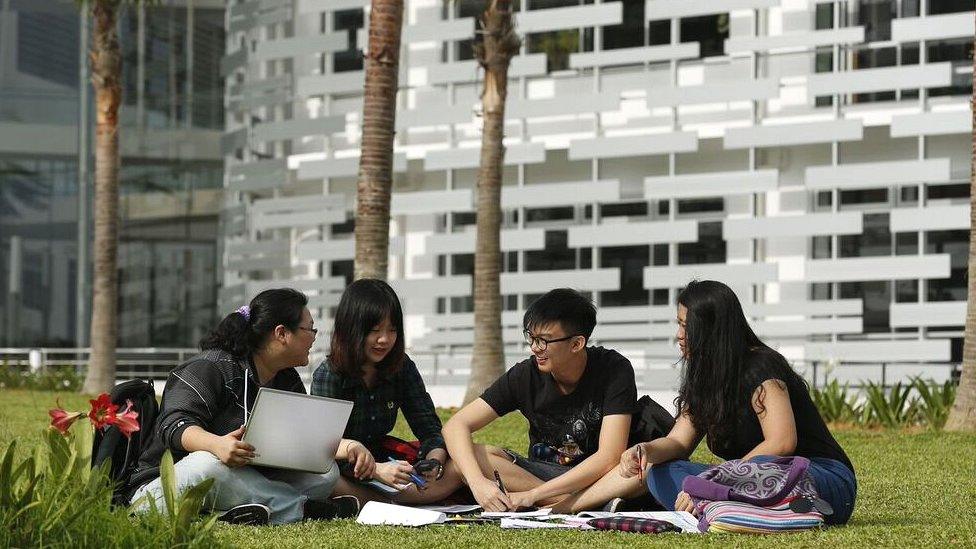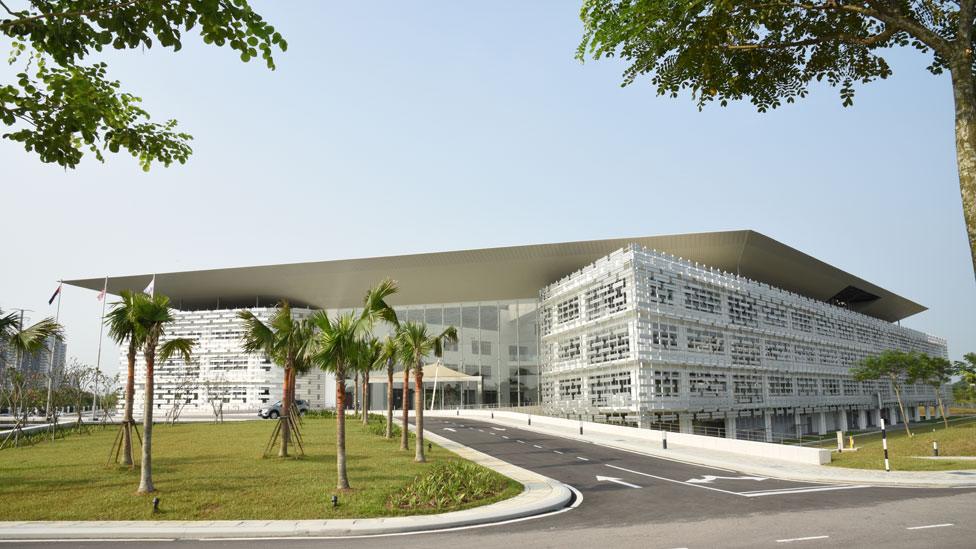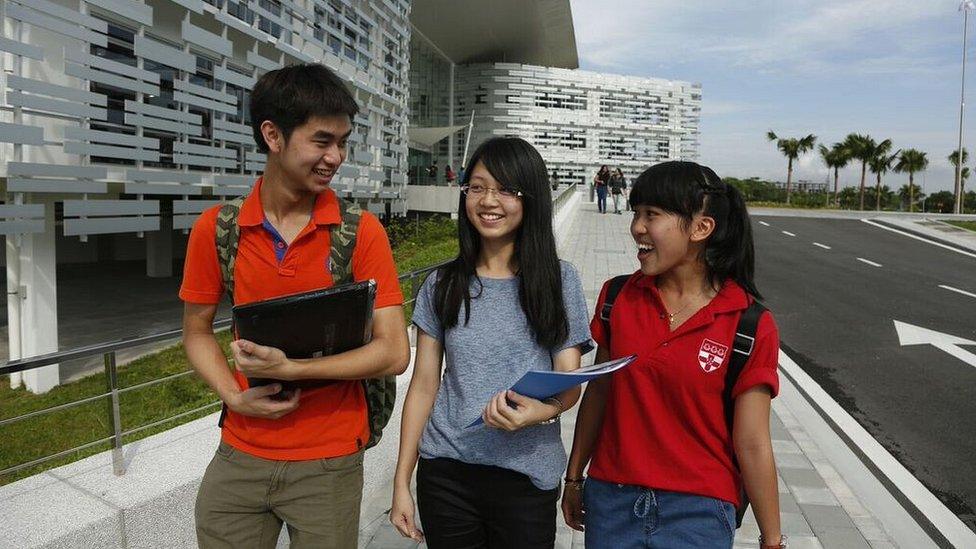Reading 'exports' university to Malaysia
- Published

Reading's new campus is part of Malaysia's drive to almost double the number of university students
The University of Reading has become the latest UK university to announce a foothold in Malaysia.
It has officially opened the doors of an ultra-modern campus, with state-of-the-art teaching and research laboratories and social spaces including an indoor park and amphitheatre. It is based in the purpose-built education hub, EduCity, on the Iskandar peninsula
Reading has invested £13m in the project so far, and intends to increase the initial cohort of 200 students to 3,000 in five years.
The investment is part of a global strategy to meet the insatiable demand for higher education in Asia and South East Asia and to build a base in these critical new markets.
If this sounds very much like a long-term business investment, that is because it is - but it is also about creating a vehicle that will encourage Asian students into Reading University for part of their course and Reading students into Malaysia for part of theirs.
Turned down China
Professor Tony Downes, provost and CEO at University of Reading Malaysia, said: "We made a decision in 2006 or 2007 that if we were to be truly a international university, it had to be about more than just bringing overseas students to the UK. So we started developing a new strategy for internationalisation and one of the elements included establishing campuses overseas."

Reading's new campus will share facilities with other UK universities in Malaysia
Reading looked at setting up in India or China but Malaysia seemed a better fit for a medium-sized UK university, with 17,000 students.
"We had an offer from China but they wanted us to grow to 10,000 students in seven years and we did not think we had the capacity to do that without emptying our own university of academic staff," said Prof Downes.
For its part, Malaysia has a long-term aim to become a global education hub and turn itself from a net exporter of students into a net importer and is running its own ambitious expansion programme for higher education.

More stories from the BBC's Global education series, external looking at education from an international perspective and how to get in touch

It plans to raise enrolment of international students to 250,000 by 2025 - nearly doubling the 2014 figure of 135,000.
The government could not afford to hit this target by expanding public universities, so one of the ways it is expanding numbers is through the establishment of foreign campuses.
Sharing the risk
Three new UK university campuses have been set up at EduCity, which is part of a wider development of the Iskandar peninsula in the heart of the country's economic zone.
Alongside the University of Reading's new campus are Newcastle University Medicine Malaysia and University of Southampton Malaysia Campus.

The number of students in Reading's Malaysia campus is expected to rise to 5,000
But they are not competing with each other, instead they are sharing the risk, working together on planning, and pooling facilities. This co-operative model - unusual in UK higher education - is possible because they are specialising in different disciplines.
The Newcastle campus focuses on medical and biomedical courses, Southampton's on engineering, and Reading's on psychology, real estate, quantity surveying and finance and business management - with pharmacy due to be added soon.
The draw for Asian students is the chance to benefit from the quality of UK provision for a much cheaper price, a factor that has become increasingly important due to the falling value of the Ringgit, Malaysia's currency, and the gloomy economic outlook in Asia.
Cheaper fees
While tuition fees for domestic undergraduate students in England are capped at £9,000 they are not capped for international students and on average cost £12,000 - with higher fees for laboratory-based courses.
But in Malaysia the Reading campus charges less than half that at £4,500 to £5,000.
Immigration policy in the UK, with restrictions on getting a job after graduating, can be a turn-off too.

Tuition fees will be much cheaper for students in Malaysia
All these factors are good news for the Malaysian authorities who want to attract Asian students keen to study closer to home, especially from the big developing economies such as Indonesia and China.
Earlier this month Aaron Porter, author of a Hotcourses Insights report into Malaysia, said recent rapid increases in international student numbers could see the country "pulling away prospective students from the big three [student destination countries], US, UK and Australia".
Expert export
But the University of Reading Malaysia is hoping its campus will lead to two-way traffic that will help the university internationalise.
Prof Downes, a former deputy vice-chancellor of Reading University, says being able to go and study at a branch of the university in another country is probably the easiest way of going to study abroad.

Flagship export: Higher education has become a major export market
"There are no credit transfer issues, no recognition issues. The programme is the same," he says.
"But the [Malaysia] campus also creates a pipeline the other way, in that some undergraduates will spend a third of their degree at Reading in the UK and some graduates will go on to do masters and PhDs in the UK."
He says the establishment of the campus is already getting a message out to the world and there have been increasing student numbers from Malaysia applying to study at Reading in the UK.
"This is an export," Prof Downes says. "Education as a whole is the second-highest earner of invisible earnings in the UK.
"It is about getting a foothold in the South East Asian market, which is very attractive, because right across the region there is ambition to get participation rates in higher education up."